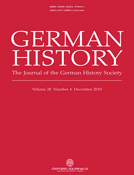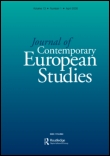Sina FABIAN: Boom in der Krise. Konsum, Tourismus, Autofahren in Westdeutschland und Großbritannien 1970–1990, in: H-Soz-Kult, 27 June 2017
Als vor einigen Jahren ein kurzlebiges Siebziger-Revival die britischen Inseln erfasste, rief der Kolumnist Jim White seinen Lesern die grundlegende Unzulänglichkeit der Dekade ins Gedächtnis: „[N]othing was any good. Nothing ever seemed to work. We were nearly 20 years on from the gloom of the immediate post-war world, yet we still lived in black and white. Sure, things had progressed. Unlike his dad, my father did have a car. Actually he had a succession of them. The only drawback was, they were forever breaking down.”[1] Read the rest of this entry »





